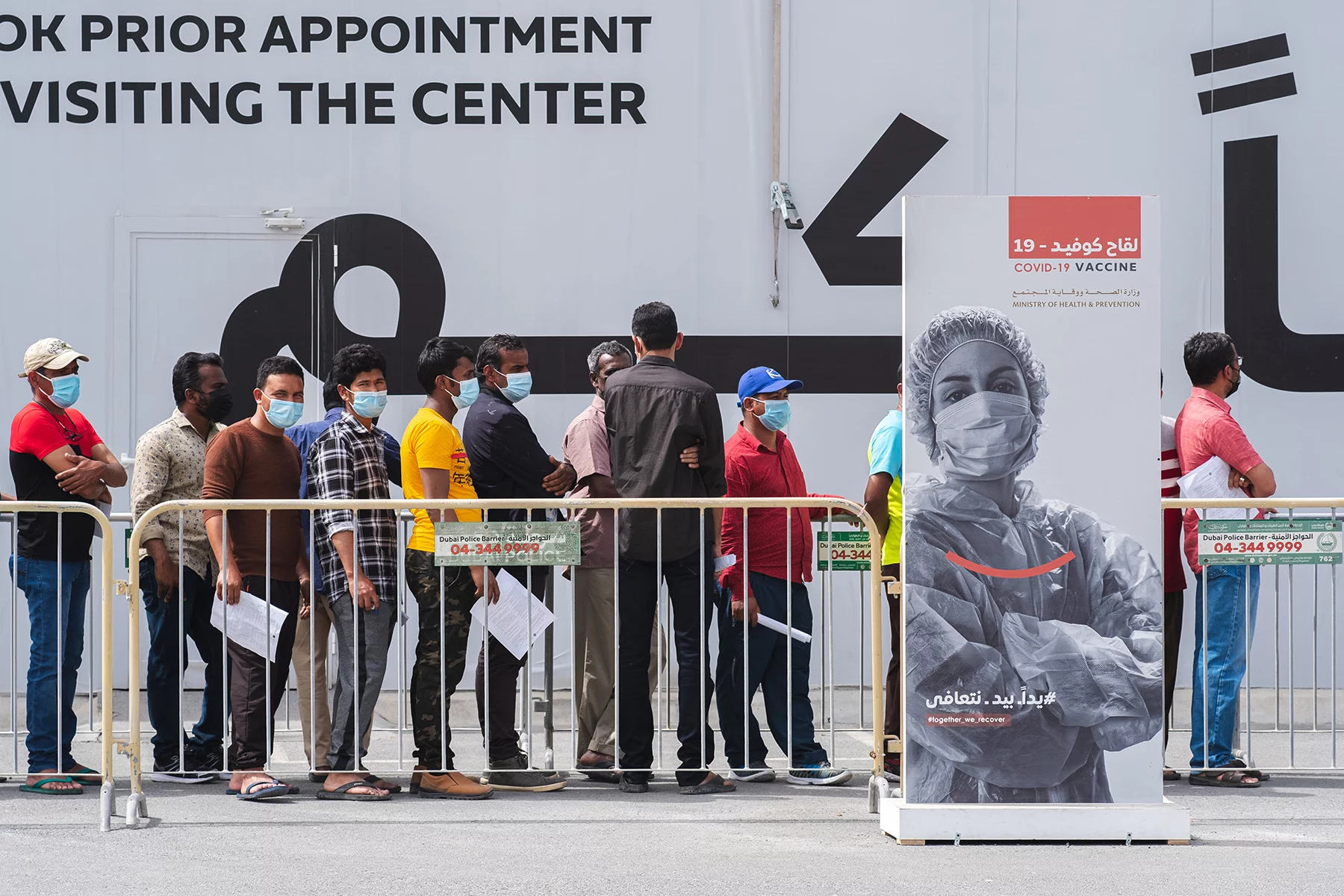If you’re moving to the UAE, you probably wonder what immunizations are needed or recommended before the move, as well as how to get yourself and your children vaccinated once in the UAE.
The good news is that the healthcare system in the UAE is among the finest in the world – it’s so good that it attracts hundreds of thousands of medical tourists each year. In addition, the government has mandated the vaccinations children must have from the time they’re born until they reach 16 to 17 years old.
This guide will explain everything you need to know about your family’s vaccinations in the UAE, including:
Orient Insurance
Orient Insurance provides a range of insurance products, including medical coverage, for internationals in the UAE. With over 40 years of experience in the country’s insurance market, they offer policies for your health, vehicle, home, and much more. When moving to the UAE, trust Orient Insurance to protect what matters.
The United Arab Emirates’ vaccination system
The Ministry for Health and Prevention (MOHAP) is responsible for overseeing healthcare in the UAE, but each Emirate’s health authority tends to deal with its own healthcare.
Anyone can access healthcare, including vaccinations, in the UAE. However expats are restricted to private healthcare, which can consequently be costly. Generally, some employers will provide health insurance to employees as part of the overall employment package. The extent of the coverage usually depends on the employee’s salary and job.

It’s possible to apply to MOHAP for a national public health card, which would enable you to get 50% discount on private healthcare services – the same as UAE nationals. However, only a small number of facilities accept the discount, and it costs AED 500.
To get a residency visa, you’ll need to get a medical fitness examination. It includes tests for Hepatitis B and C, along with other illnesses. In fact, Hepatitis B vaccinations are mandatory for expats who want to work in the UAE in the following professions:
- Nannies
- Housekeepers
- Supervisors of nurseries or kindergartens
- Health workers
- Those who work in hairdressers, beauty salons and health clubs.
Insurance for vaccinations in the UAE
Vaccine coverage in the UAE depends on what kind of health insurance you have. For expats living in the country, your health insurance must be private and is usually provided by your employer.
If you don’t get health insurance through your employer, or you travel outside the UAE a lot, you may want to look into one of these international providers before you miss any critical vaccinations:
You can also see a list of all insurers and related professions registered within the country on the Central Bank of the UAE’s website (PDF).
Vaccinations for children in the UAE
If you’re having a baby in the UAE, it’s most important to know that vaccinations for children are mandatory from the time they’re born. The Ministry of Health and Prevention issues a vaccination card for children to record all the vaccines they have been given, and the date they were administered. It is most important that you bring this along to your child’s vaccination appointments.

If you’re a UAE resident, children’s vaccines are free until they turn five at government hospitals and clinics.
In the UAE, the routine childhood vaccination schedule goes in this order:
- BCG and Hepatitis B vaccines: after birth
- Hepatitis B, HiB, Diphtheria, Tetanus, Accellular Pertussis, Polio and PCV vaccines: two months old
- HiB, Hepatitis B, Diphtheria, Tetanus, Accellular Pertussis, Polio and PCV vaccines: four months old
- Hepatitis B, HiB, Diphtheria, Pertussis, Tetanus, Polio and PCV vaccines: six months
- MMR and Varicella vaccines: 12 months old
- HiB, Diphtheria, Tetanus, Accellular Pertussis, Polio and PCV vaccines: 18 months old
- Diphtheria, Tetanus, Accellular Pertussis, Polio, MMR and Varicella vaccines: Grade 1
- Rubella: girls only, Grade 9
- Tetanus, reduced Diptheria, reduced Pertussis, Polio and HPV (girls only) vaccines: Grade 11.
COVID-19 vaccination in the UAE
COVID-19 vaccinations are available throughout the UAE, and are free for residents and medically eligible people.
For general coronavirus health and information in the UAE, including where to find vaccination schedules and locations, as well as the latest updates, read all about coronavirus in the UAE.
Vaccinations for special groups in the UAE
In addition to the mandatory immunizations, extra vaccines are recommended for certain adults who are considered to be at higher risk of certain diseases:
- Pneumococcal influenza vaccine (PPSV): for those with diabetes, chronic heart disease (not hypertension), chronic alcoholism, smoking, chronic renal failure, chronic liver disease, asplenia, transplant recipients and those undergoing immunosuppressant therapy
- Influenza: for healthcare personnel
- Hepatitis A: for those with chronic liver disease, and prison inmates and employees
- Hepatitis B: for those with chronic renal failure, healthcare personnel, and prison inmates and employees
- MMR: for healthcare personnel.

Equally important, those who have undergone a bone marrow transplant are also recommended to get multiple doses of various vaccines from 12 months after their procedure.
Another at-risk group includes pregnant women. Therefore, it’s a good idea to make sure you’re up-to-date with vaccinations ahead of getting pregnant.
Firstly, women who are pregnant during the flu season are recommended to get the influenza vaccine. If possible, it’s best to get this during your first trimester. A combined tetanus and diphtheria vaccine may also be necessary, especially if you have an incomplete primary vaccination history, or if it’s been more than 10 years since your last booster.
Travel vaccinations in the UAE
Travel vaccination requirements to enter the UAE may be necessary, depending on your nationality. It’s a good idea to check with the embassy of the United Arab Emirates or consulate in your area before travelling to the UAE.
The Centers for Disease Control also provides travel vaccination advice.
Required vaccines include meningococcal vaccine and yellow fever vaccines for travelling to certain destinations. In addition, recommended vaccines for travelling include:
- Typhoid
- Hepatitis A
- Hepatitis B
- Rabies
- Special vaccines, such as Japanese Encephalitis and Lyme Disease vaccines.
Your health insurance may cover travel vaccinations; however, this depends on your provider and the plan you’ve signed up to.






